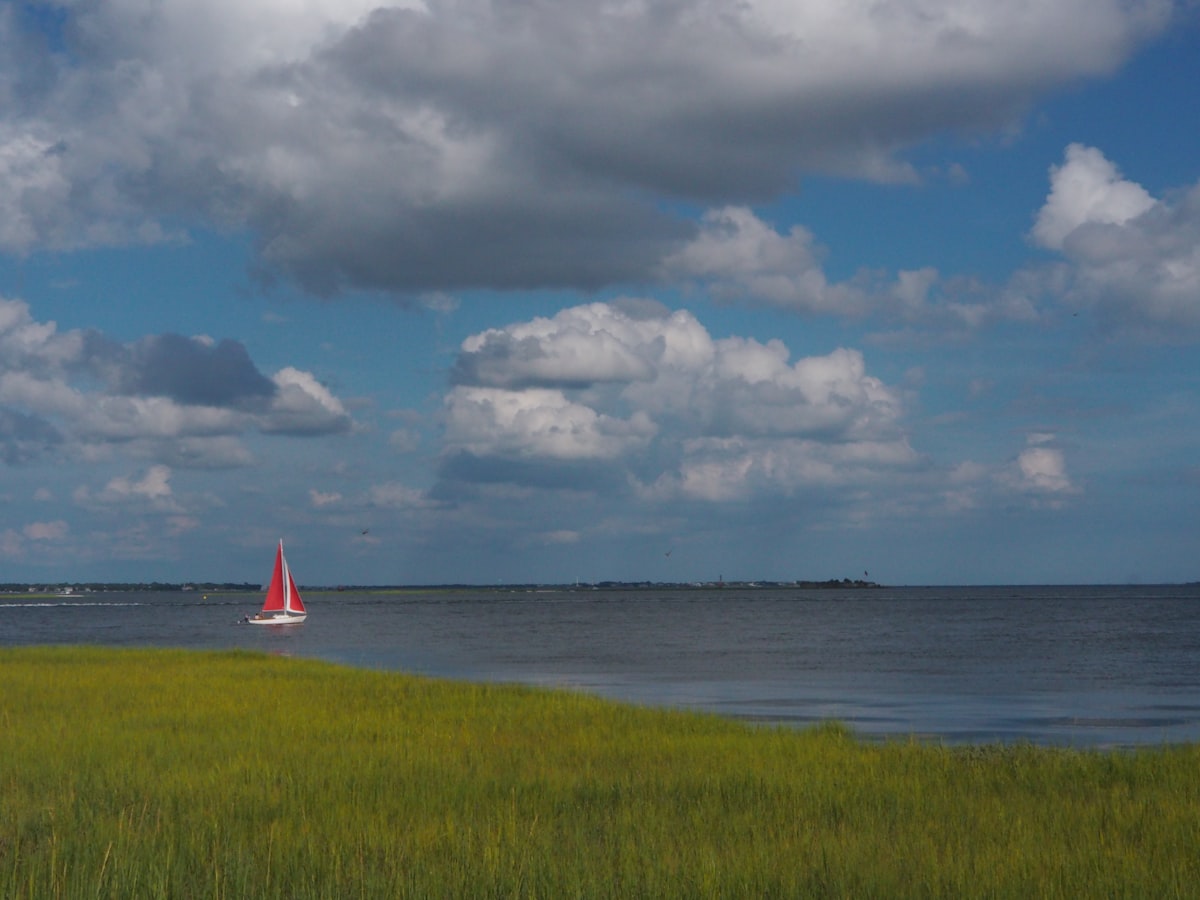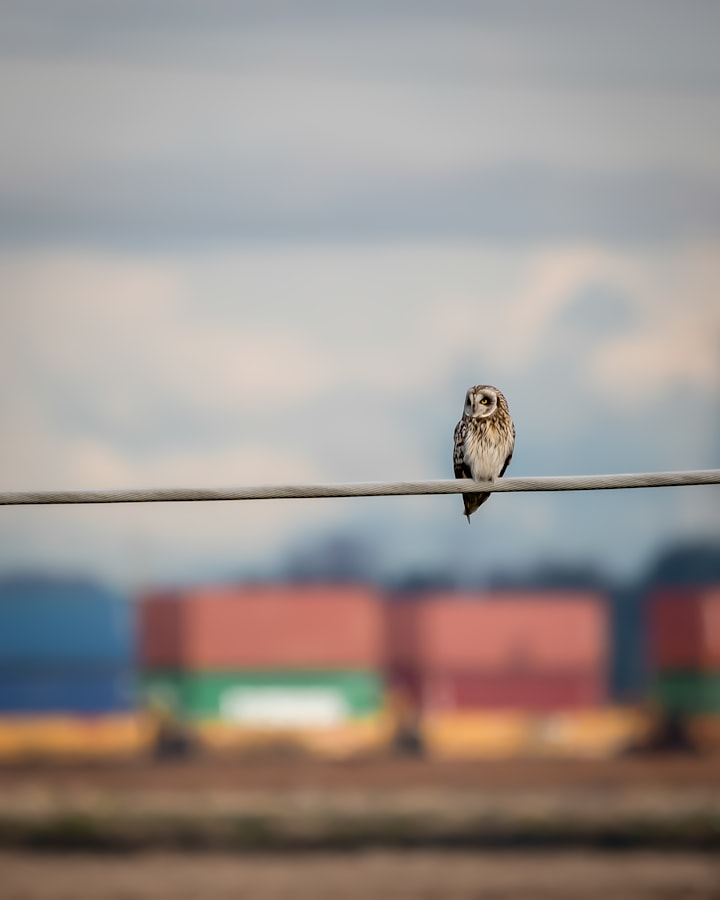Wraggborough is Flooding
Fiction by Twill Adams

by Twill Adams
The swordfish attacked during tourist season on a hot summer day. The owner of the Sailebration, the first boat in the marina to fall, watched from the dock as thousands of swordfish rose like a living wave and battered his sloop with serrated heads until its broken hull was swallowed by the fishy mass. He would later remark to the local news that it was uncannily like a nightmare he’d had since childhood.
By the time I was contacted, the word had spread. Throngs of tourists and concerned harborfolk were jostling for a peek at the spectacle. I was escorted past them and down to the docks. The air rang with metallic scrapes and groans. The sky was beautiful, like blue tile in a Spanish sauna. It smelled of sea brine and boat fuel.
As Director of Animal Management for the Aquarium, there was the expectation I’d have some insight into what was happening. I was sorry to let the City Manager down. All I could say was, there is no precedent for thousands of swordfish converging on a harbor in the American Southeast, and no way to explain the writhing swordfish in front of me that swarmed locust-like from boat to boat.
I have spent most of my life around fish. Where others see a dumb blankness in their gaze, I have always seen a centered calm, like dark ballast stones. These swordfish had crazed eyes, their pupils shrunken, the whites turned to a sharp pulsating blue. It made my skin crawl.
A congregation of “decisionmakers” gathered around me. The Mayor asked whether it was mating season. The Chief of Police offered that they might be hungry. Then more and more men in khakis arrived, outraged, red in the face, looking out at their pockmarked and scarred boats and saying: something has to be done. Something has to be done about this.
I argued against it. I managed to get them to call Fish and Wildlife, hem and haw on the phone about how it was a tough decision. But I could feel the adrenaline in the air, and even as I called it mass murder I seemed to fade from their awareness, no longer an expert but a hippie irritant. They called in SLED, cleared out the bystanders, and shot into the sea. I couldn’t stay and watch. I went into the Marina restaurant and had drinks. It felt like hours before the gunfire stopped.
The City Manager had the decency to stop by. Sorry, Fred. A hand on the shoulder. Something had to be done.
***
I went in to work the next day, went through the motions. I looked down into the shark tank and saw nothing but the swordfish, their rippling flesh, then the misting blood from the opening salvo…
Somehow, I emerged on the other side of the day. I received a text from an unknown number: Thank you for your work yesterday. You should meet us at Hyman’s Seafood tonight.
I ignored it, went home, collapsed on the sofa. Then another text came: Come if you want answers.
I arrived in my ill-fitting suit, feeling absurd. The hostess sent me upstairs, to the private room, the “Seaman’s Lounge.” Around the old mahogany table, a dozen sunspeckled men in expensive blue shirts sat like they imagined themselves kings. They turned their eyes to me. I was reminded of my morning in the aquarium’s shark tank.
I sat next to a gray haired man with rod-straight posture and smirking lips. He introduced himself. He shared a name with a downtown neighborhood. Then he went around the room, listing off familiar names, old names, Charleston names. For my safety, I have not reproduced them here.
The neighborhood man asked me pleasantries, airly, like he was playing with me. I caught snippets of conversation around me. These men talked about hierarchies, who’d gained this week, who’d lost. I was answering a question about my school days when he cut me off.
“Have you heard the Song of the Mariner?” His gaze was alert now.
I shook my head no.
He leaned in. His breath smelled like lavender and coffee. “Listen closely. When Charles Towne was young, a great man, Joseph Wragg, led the way on making the City a trade center. In the 1730s, his ships alone brought seven thousand slaves through the City. But he was prone to visions. He’d be dictating work orders one moment and raving the next, a man possessed. He shone with light from a distant shore. His flesh became a battery for divination.
“His troubles began in 1722. His flagship, Seahorse, was asea with 50 negroes and pulling into Charles Towne harbor when he felt a shifting underfoot. The barge slowed. He looked over the deck and saw…”
The oldest man at the head of the table with a wide, wispy beard picked up the tale in a smoker’s rasp.
“An undulating mass of tentacles battering, battering, as if Hell’s gates had grown fingers and were grasping at his heels. The Seahorse was shattered, laid to rest at the bottom of the harbor. Wragg was never the same after. He was visited by dark premonitions the rest of his life. Skies of crimson, forests of smog, creeping slurry, torrents of black, gnashing waves, the empty driftwood throne with dead Gaia at its feet…”
The door behind me swung open and waitresses emerged, stacked with plates of lemon butter sauce and fish steaks. Like a spell was broken, the men broke from their cultish stares and began eating. All but the neighborhood man, who leaned in close to me.
“Every hundred years,” the neighborhood man said, “we are visited by the deep. And you are our noble witness.”
He had images ready. Photos of a wood carving, showing what seemed like the harbor with bubbling, boiling water until I made out the masses of jellyfish filling the sea. Another photo, old, black and white, of a beach scattered with piles of dead dolphins.
As I looked at the pictures, the neighborhood man took slow, satisfied bites of his fish steak. At the end of the table sat a swordfish head, saucer eye staring up at me.
That night, I dreamed I was peering over the edge of a swordfish eye. I stumbled and fell down through its inky black center. I was in a void surrounded by constellations of stars, their lights winking at me in a language I didn’t understand. Then I woke up, stumbled to the toilet, and threw up my dinner. I don’t eat fish anymore.


